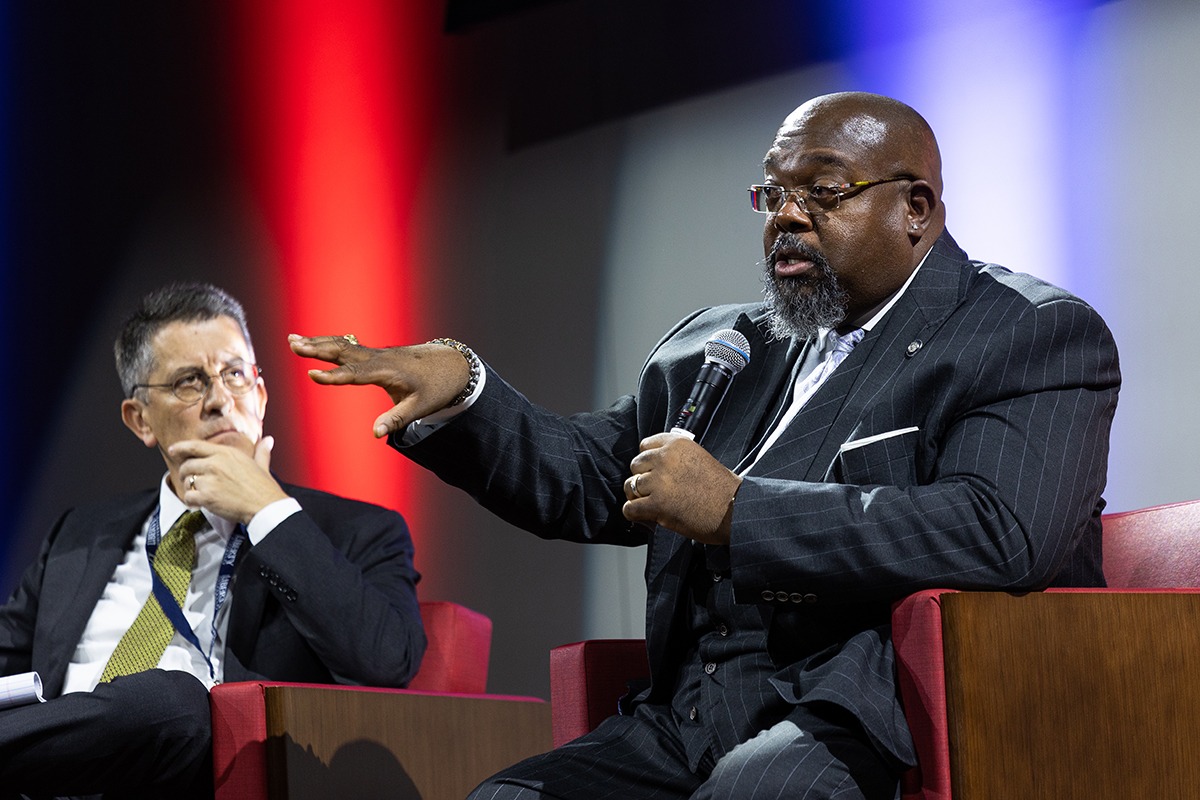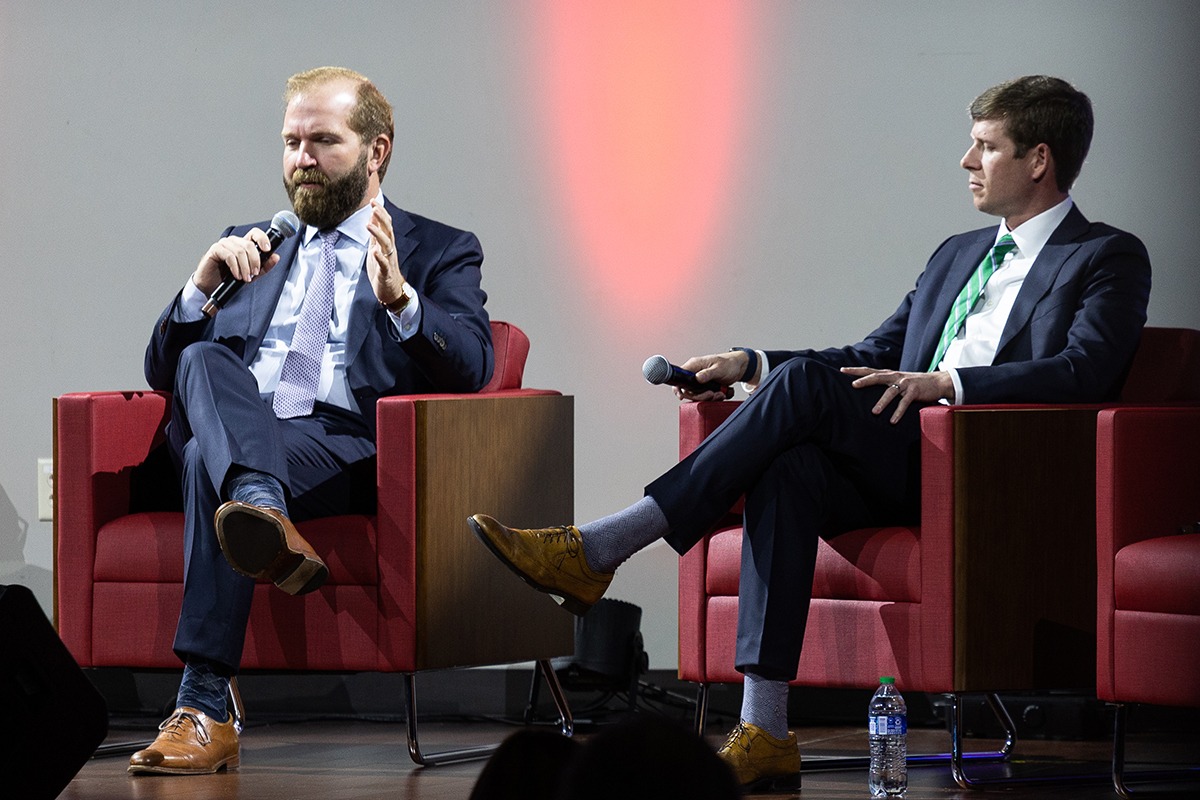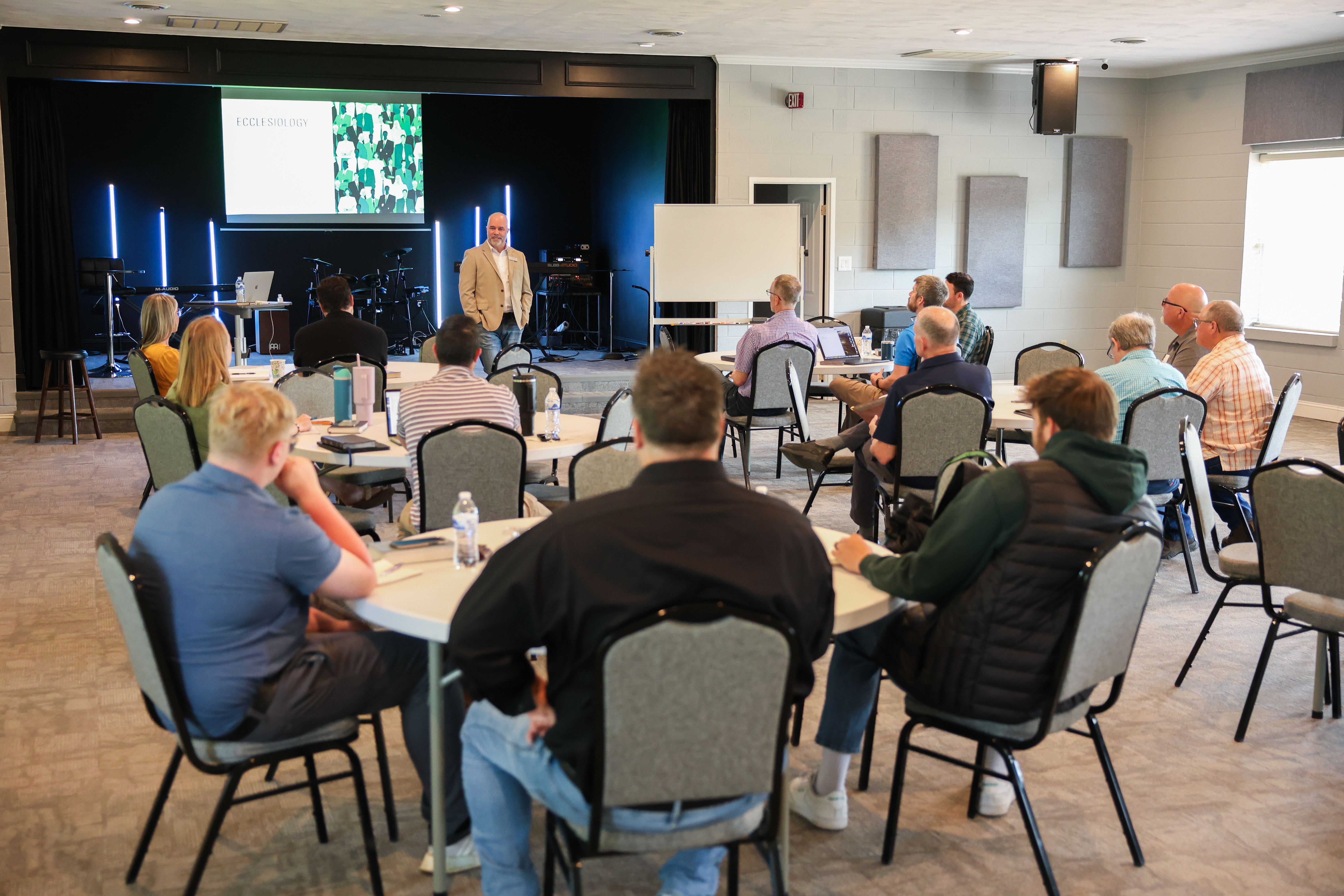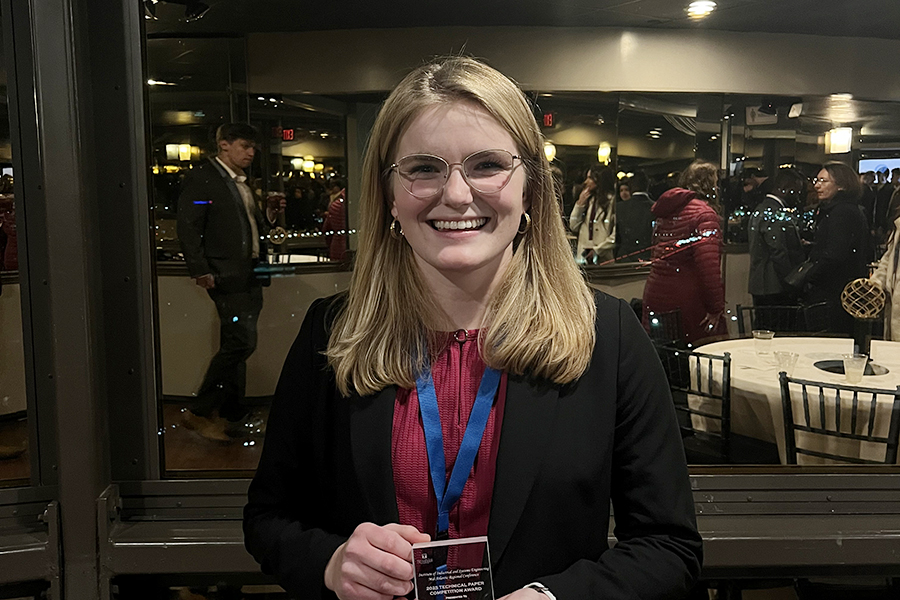Search News Archives
Filter News Articles
Additional Navigation
Former Supreme Court clerks participate in Liberty University CEO Summit
October 10, 2022 : By Jacob Couch - Office of Communications & Public Engagement

During the second annual Networking the Nations CEO Summit at Liberty University, three former Supreme Court clerks participated in a Supreme Court Decisions in 2023; Impact on Business panel titled on Thursday morning in the School of Business Towns Auditorium.
The panelists were John Moran, former clerk to the late Justice Antonin Scalia; Jack White, former clerk to Justice Samuel Alito; and Jonathan Ellis, former clerk to Chief Justice John Roberts. They are all with the McGuire Woods law firm, which has 23 offices across America and London with over 1,000 attorneys within its network. Abram Pafford (’96), who is also a partner with McGuire Woods, moderated the discussion.
The CEO Summit, hosted by the School of Business, was held Wednesday-Friday and welcomed over 630 CEOs, political figures, athletes, and world-class faith leaders to campus with the goal of uniting industry minds from around the globe in promoting faith, friendship, and Judeo-Christian business principles.
The panel topics centered around upcoming Supreme Court decisions that may have significant effects on businesses around the nation.
Pafford noted an upcoming case that is generating discussion nationwide, National Pork Producers Council v. Ross, scheduled for argument on Oct. 11. The case concerns the constitutionality of the conditions California’s Proposition 12 imposed on pork producers nationwide in order to sell pork in the state.
“The ballot initiative said that California will not import products from pigs that are born to sows that do not have 24 square feet of living space for most of their natural life, however long that life is,” Pafford said.

The case raises the concern that other states will begin pushing their potentially new mandates on neighboring states.
“This is not just about pork; this is about the relationship between and among the states in legal and regulatory scenes,” White said. “And if one state has principles it embraces, how much can it do to push those principles on another state.”
“There are other issues that recently have been pushed down to the states to deal with independently,” he added. “There are those out there who want to encourage other states to embrace their viewpoints on those issues. That’s what is an issue. We have to think on a broader scale about what’s going on (with these cases).”
They agreed that a root issue in many of the cases that they had worked as clerks comes down to the way governmental power is distributed.
“We want to return the center of gravity of power to the people, and the way we do that is we give it to the elected, not the administrator,” said White. Ellis elaborated: “One way to address the problem … is to take away power from the administrative state (executive branch administrative agencies exercising the power to create and enforce their own rules. Another way to do it is to make the administrative state accountable to the people.”
For more news from the summit, go to Liberty.edu/News.


